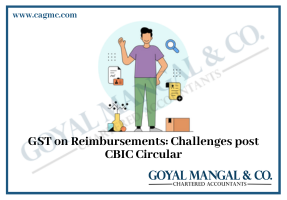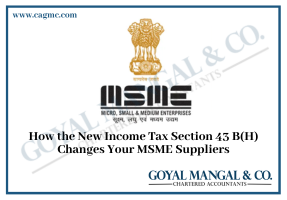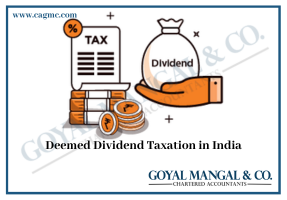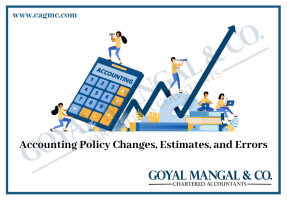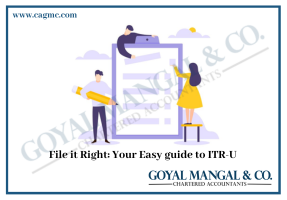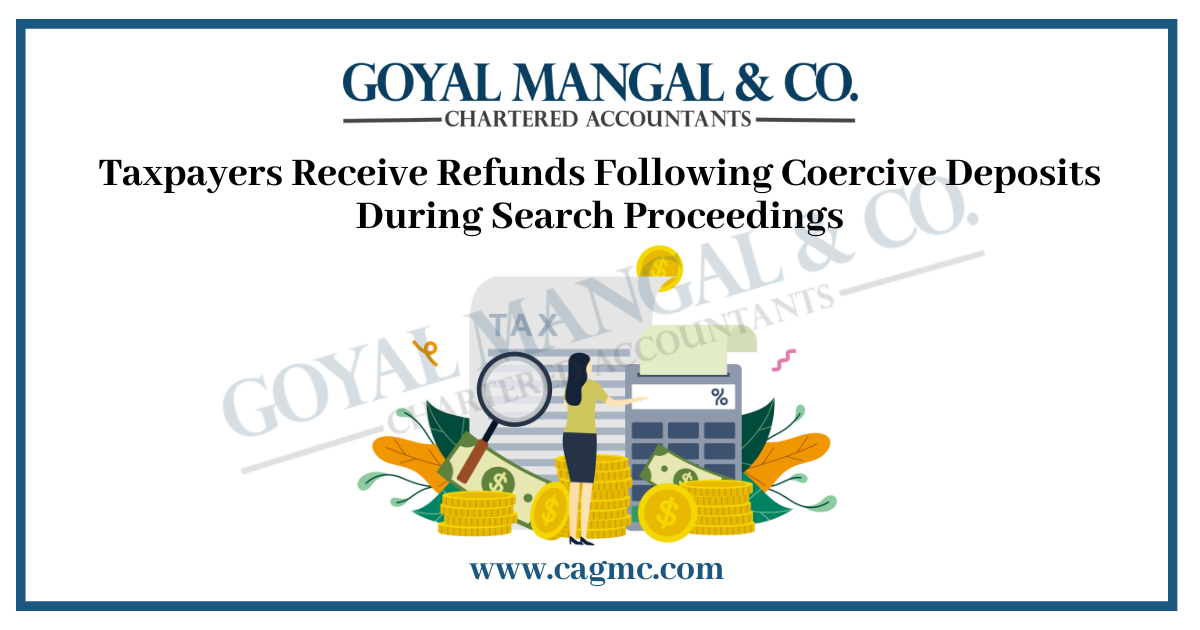
This article is about Refunds of deposits during investigation. In a recent case, Lovelesh Singhal Prop. Shivani Overseas v. Commissioner, Delhi Goods and Services Tax & Ors. [W.P.(C) 16353/2022 dated December 05, 2023] in the Delhi High Court said a taxpayer was forced to pay money during a tax investigation. The court decided the taxpayer should get their money back because they were bullied into paying it. This is important because it protects taxpayers from being unfairly treated during investigations. In this blog we will get to know about the whole proceedings & Refunds of deposits during investigation.
| Table of Contents |
Facts
Lovelesh Singhal operates a business known as M/s Shivani Overseas, engaging in the trade of PVC Resin. Lovelesh Singhal’s business premises were subjected to a search by the Revenue Department. It was alleged that the Revenue Department officials coerced Lovelesh Singhal to undo the Input Tax Credit (ITC) for a purchase he made from a supplier who had their GST registration revoked in hindsight. Due to the pressure exerted by the Revenue Department officials, Lovelesh Singhal found himself compelled to transfer the contested ITC amount.
Afterwards, the Petitioner’s statement was documented, in which they refuted any discrepancies between GSTR-1 and GSTR-3B, as well as GSTR-2A and GSTR-3B. Nevertheless, the respondent sent a notice called the Impugned SCN on March 29, 2023, to the petitioner, citing Section 74 of the Central Goods and Services Tax Act, 2017 (CGST Act). This notice included a demand for payment, along with interest and penalties.
The Petitioner, unhappy with the accused Show Cause Notice (SCN) and the failure to reimburse the Input Tax Credit (ITC) amount, submitted a written petition to the respected Delhi High Court. The argument put forward was that the ITC amount was deposited against their will and under pressure throughout the search process.
Issue
Is Lovelesh Singhal allowed to get back the money they paid because they were pressured during the search by the Revenue Department, so does he is eligible for Refunds of deposits during investigation?
Held
The respected Delhi High Court said in the ruling in the court hearing in case number 16353 of 2022 ruled as follows:
- It is important to acknowledge that if the Respondent forcibly collects the tax, it must be returned.
- Additionally, the Petitioner must accept the responsibility for the liability that requires payment of taxes, and this acknowledgment should also be acknowledged by the Respondent.
As per the judgement of Gujrat High court the judgement of Tax officials can’t force businesses to pay taxes during inspections. Here’s what courts have said:
- Taxes can’t be forced: Tax officials can’t pressure businesses to pay taxes during inspections, even if the tax seems owed.
- Follow the rules: If a business wants to pay tax during an inspection, it should be done on a separate day following proper procedures.
- No forced payments: If officials don’t follow the rules, any payment made by the business is considered involuntary and won’t be valid.
This means businesses shouldn’t feel pressured to pay taxes on the spot during inspections and have the right to follow proper procedures at their own pace.
The business owner said they didn’t owe any tax, but officials still made them pay. Here’s what the court decided:
- No valid payment: Since officials didn’t follow proper rules and the business owner disputes the tax, the payment wasn’t considered voluntary.
- Money returned: The court ordered the officials to refund the disputed tax amount to the business owner.
- Future investigations allowed: This decision doesn’t stop officials from investigating if they believe the tax was wrongly avoided.
The court sided with the business owner because they were pressured to pay, and proper procedures weren’t followed. However, the officials can still investigate if they suspect wrongdoings.
Takeaway
The decision of the Delhi High Court in the case of Lovelesh Singhal v. has been restated. The commissioner sets a new standard that supports taxpayers, stressing the importance of following appropriate protocols in the collection of taxes. These significant ruling ensures citizens from being compelled to make tax deposits against their will in demanding situations, ensuring that proper legal procedures are adhered to. Taxpayers can find comfort in this decision, which provides protection from excessive financial burdens resulting from compulsory transactions during search operations.

